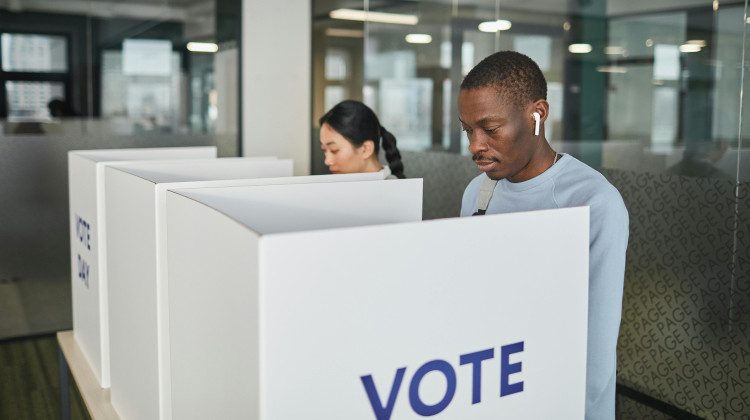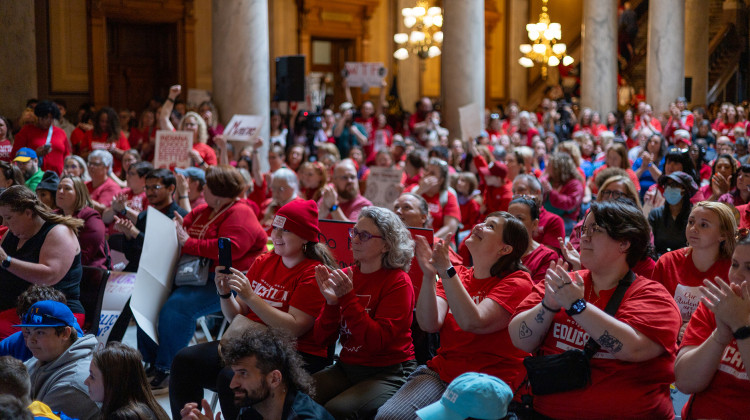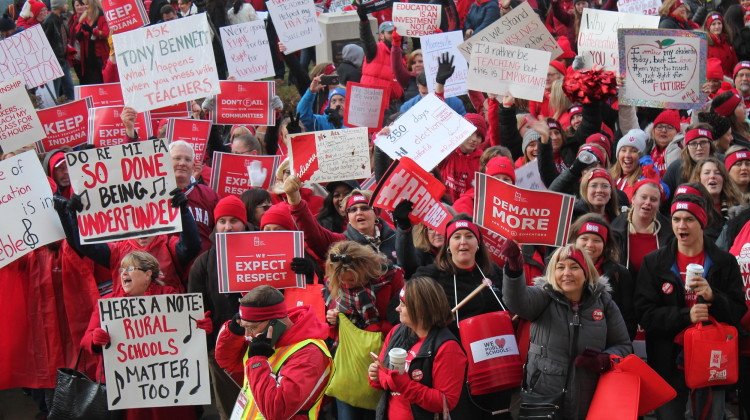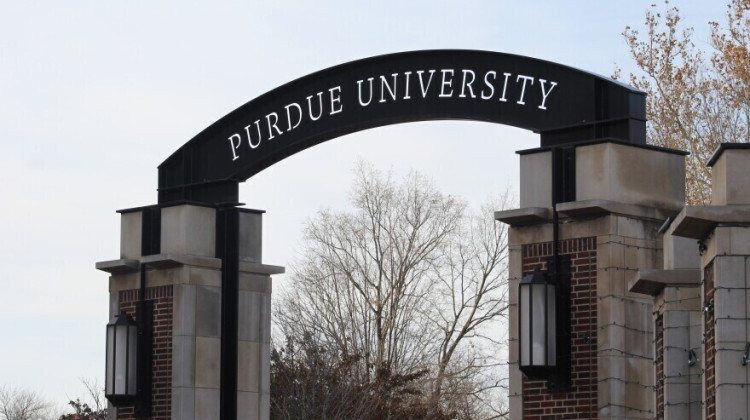
A voter-approved increase to local property taxes is one of the only ways a district can increase general funds and ensure its stability for eight years.
Edmond Dantès / PexelsThree Indiana school districts are asking voters to approve or renew a local property tax referendum on the November ballot to increase or maintain funding for teacher pay and student academics.
Enrollment decline over the last decade has made it difficult for these districts to maintain competitive compensation and pay for other classroom expenses.
Kokomo School Corporation and Twin Lakes Community Schools are seeking their first ballot initiatives. But Lake Station Community Schools is asking voters for the second time in a year to renew the tax rate approved in 2017. Voters rejected the extension in November 2023.
Schools are funded by the state through a per-student formula to pay for teachers, staff and academic programs. If enrollment drops, the total amount of funding a district receives proportionally decreases, reducing the overall budget available for teacher and staff salaries, academic programs and operations.
A voter-approved increase to local property taxes is one of the only ways a district can increase general funds and ensure its stability for eight years. The election is Nov. 5 and early voting is underway.
Lake Station referendum
The defeat of Lake Station’s referendum last year led to dozens of staff layoffs, including all of the district’s paraprofessionals who support teachers in the classrooms. Transportation services in the northwest district were also cut, forcing students to stay home twice a week for remote learning instead of going to school.
"The state of Indiana is not properly, appropriately, whatever term you wish to use — funding public education," Superintendent Tom Cripliver said during an Oct. 9 meeting about the referendum. "That is the number one issue.”
Lake Station’s proposed levy renewal would generate $1.4 million a year. Almost $700,000 is planned for teacher pay, recruitment and academic programs. Nearly $485,000 would go toward bus transportation.
If the ballot initiative is turned down by voters it would cause the district to end transportation for nearly all students and stop summer programs and after-school clubs. Teachers are expected to leave and mental health services for students will be reduced, according to the political action committee advocating for the referendum passage.
Enrollment in the district has dropped by about 23 percent since 2014, according to state data. Last year, 1,144 students were enrolled.
School choice appears to play a role in the enrollment changes, according to a WFYI analysis. During the 2023-24 academic year, the district had a 13.4 percent net loss of students who live in the district but chose to attend another traditional public or charter school, or use a voucher to enroll at a private school.
If the referendum passes, Lake Station will be required by a 2023 law to share a portion of the property-tax revenue with charter schools. Charter schools, which are publicly funded but independently managed, don’t typically receive property tax revenue in Indiana.
The district estimates it would pay out a total of $27,845 to three charter schools that enroll students who live in Lake Station.
Twin Lakes referendum
Shrinking enrollment led leaders at Twin Lakes Schools to approve the closure of two elementary schools as part of a consolidation plan. Enrollment fell nearly 11 percent in the past 10 years. Last year, the north-central Indiana district enrolled 2,183 students.
Fewer students enrolling caused a reduction in state funds. As a result, the district’s early career teachers and educators with 20 years experience are paid $3,500 to $5,000 less than similar teachers at nearby districts, according to Twin Lakes Schools.
Twin Lakes’ proposed levy would inject $3.5 million a year into the district’s general fund. But there’s organized opposition to the plan on social media and a yard sign campaign urging a no vote.
A referendum loss would result in staff layoffs, the district said.
Kokomo referendum
Kokomo’s levy would raise $6.16 million per year. The majority of the money — $4 million — would go toward retaining and recruiting teachers, plus professional development aimed at improved student outcomes.
The district enrolled roughly 5,400 students last academic year. That’s a nearly 20 percent decline in the past decade, according to state data. A majority of Kokomo students — 62 percent — qualify to receive free or reduced price meals
School choice also appears to have impacted Kokomo’s enrollment. Last year, the district had a nearly 26 percent net loss of students who live in the district but opted for other school options supported by state funds.
How does a property tax referendum work?
Many school districts rely on additional funds from local property tax referenda to consistently finance teachers, staff, and academic programs. This follows a change by state leaders in 2009 to primarily fund schools through state revenue generated by sales taxes, individual income taxes, and other levies.
Indiana imposes caps on property taxes based on assessed value rates according to property type: 1 percent for owner-occupied homes, 2 percent for other residential properties and farmland, and 3 percent for all other properties. However, if voters approve a local referendum, property tax bills can exceed the cap, with the additional revenue directed to the local school district.
Here are the local public questions for school referendums on the Nov. 5 ballot. The totals for operating levies are based on the net assessed valuation of taxable property in the district boundary earlier this year. The value can change.
Property tax rate:
0.26 per $100 of assessed value for eight years.
Total revenue over eight years:
$49,328,000
How $6,166,000 of annual revenue will be spent:
Retention, attraction of teachers, staff and professional development ($4,000,000); academic, educational programs ($1,166,000); updates to technology infrastructure ($1,000,000)
Lake Station Community Schools
Renewal of a property tax rate previously approved in 2017:
$0.54 per $100 of assessed value for eight years.
Total revenue over eight years:
$11,302,592
How $1,412,824 annual revenue will be spent:
School bus transportation ($484,743); retention, attraction of teachers and staff ($346,245); academic, educational programs ($346,245); student safety, school security ($138,498); other education needs ($69,248); required distribution to charter schools: Neighbors' New Vistas High School ($13,317), Discovery Charter School ($13,317) and 21st Century Charter School of Gary ($1,211)
Property tax rate:
$0.25 per $100 of assessed value for eight years.
Total revenue over eight years:
$28,000,000
How $3,500,000 of annual revenue will be spent:
Retention, attraction of teachers and staff ($1,500,000); academic, educational programs ($1,250,000); student safety, school security ($750,000)
Eric Weddle is WFYI's education team editor. Contact Eric at eweddle@wfyi.org or follow on X at @ericweddle
 DONATE
DONATE






 Support WFYI. We can't do it without you.
Support WFYI. We can't do it without you.